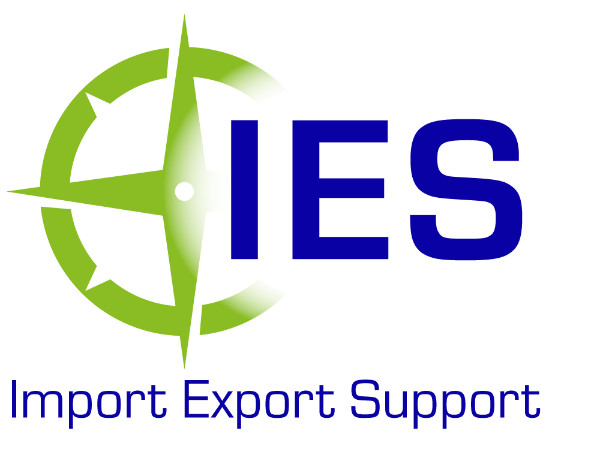The Brexit clock: should it alarm importers and exporters?
Time
This series looks at Brexit through the eyes of importers and exporters and in this edition we’re watching the clock. I’ll also outline some of the steps businesses should consider taking.
The Brexit clock is ticking down to 29 March 2019 – but it is abundantly clear that 2 years isn’t going to be enough time to negotiate the complex arrangements required to ensure a mutually beneficial agreement with the EU. Even the simplest of Free Trade Agreements (FTA) take a minimum of 5-10 years to negotiate and there are just 14 months left before a deal must be signed off by the remaining 27 members of the EU.
However, Brexit is not the only issue on the EU agenda, there are a vast amount of issues currently going through the EU parliament including trade talks with Australia and New Zealand, EU-legislation to protect whistle-blowers, protecting workers from exposure to carcinogens. The link takes you to the EU Press room which gives additional information on these and other issues.
http://www.europarl.europa.eu/news/en/press-room
Talk of red-lines and potential stale-mate will only result in a so-called hard Brexit which could have a massive impact the financial stability of the UK. It would possibly result in chaos at the ports and debilitating legal issues may allow the UK to be crippled by gaps in the statute books which could cost millions.
The lack of time will result in compromises. This means taking a Hard or a Soft Brexit.
Option 1 – ‘Hard Brexit’:
Here, the UK is free to broker its own worldwide trade agreements. However, as of 30th March 2019, all UK imports and exports would be subject to the World Trade Organisation’s (WTO) most favoured nation tariffs. In other words, imports and exports will become more expensive.
Option 2 – ‘Soft Brexit’:
Here, the UK would need to agree on a Transitional Arrangement with other EU countries i.e. a ‘copy and paste’ of current EU legislation as laid out in the Union Customs Code (the UCC) into UK law. This would allow the UK to continue to trade freely with the EU and its partners while allowing more time to broker a full trade deal with the EU and the rest of the world.
Some key Implications
Free Trade Agreements
Under hard Brexit the UK will lose its tariff free trade with the EU & other territories like Turkey, Israel, South Korea. It will take to negotiate Free Trade Agreements (FTA) with each country individually, as even the simplest FTAs take a minimum of five years to agree and adopt. Also, being much smaller, the UK may not have the same bargaining power with larger countries like China and the USA as it did as part of the EU.
Transitional arrangements
The UK and the EU agree that if there is a period of transition this period should be time bound for a maximum of another two years. Many companies have already started to relocate their European activities from the UK to one of the EU27 countries and a prolonged, drawn out fight with the EU would give us a longer period of uncertainty which would mean more businesses moving out of the UK.
These kinds of negotiations take time, lots and lots of time, and having triggered article 50 the UK no longer has the benefit of full membership so will no longer have a voice or be able to vote on European policy or law. The UK will continue to be bound by the EU legislation permitting free trade between the UK and the EU & its partners, so during this extended period the UK would have to accept and adopt the decisions made by the EU. This type of transitional arrangement would not deliver what many Brexiteers feel they voted for.
Possible outcome:
Current rhetoric would lead us to believe that soft Brexit is the most likely outcome. Whatever happens in March 2019 there will be winners and losers. If, as the government has stated, the UK would like to negotiate a whole new set of rules on trade unlike any other arrangement currently permitted when trading with the EU, this will not happen overnight or without costs.
What can businesses do now to prepare?
Whatever the Brexit outcome the suggestion is for business to adopt best practice. So why not act now to stay ahead of your competitors – and of course we can help you.
Review your supply chain: Look at your Incoterms® in place https://iccwbo.org/resources-for-business/incoterms-rules/incoterms-rules-2010 & learn about the origin of your raw materials i.e. where they come from. This can impact your duty bill. https://ec.europa.eu/taxation_customs/business/calculation-customs-duties/rules-origin_en
Apply for customs simplifications that allow you to import & re-export with little or zero duty
Get involved: HMRC and the Government are looking to businesses to assist them. They acknowledge your ability and expertise and want to engage and communicate with businesses so that they deliver more of what is required to facilitate growth and promote exports.
This series aims to give you the information you need to help make decisions for your import and export business. There’s lots more to be said on Brexit and I’d be interested to hear what issues matter most to you. Please add a comment below or email me, [email protected] and I will make sure your voice is heard
Coming up next time:
What Brexit means for borders

